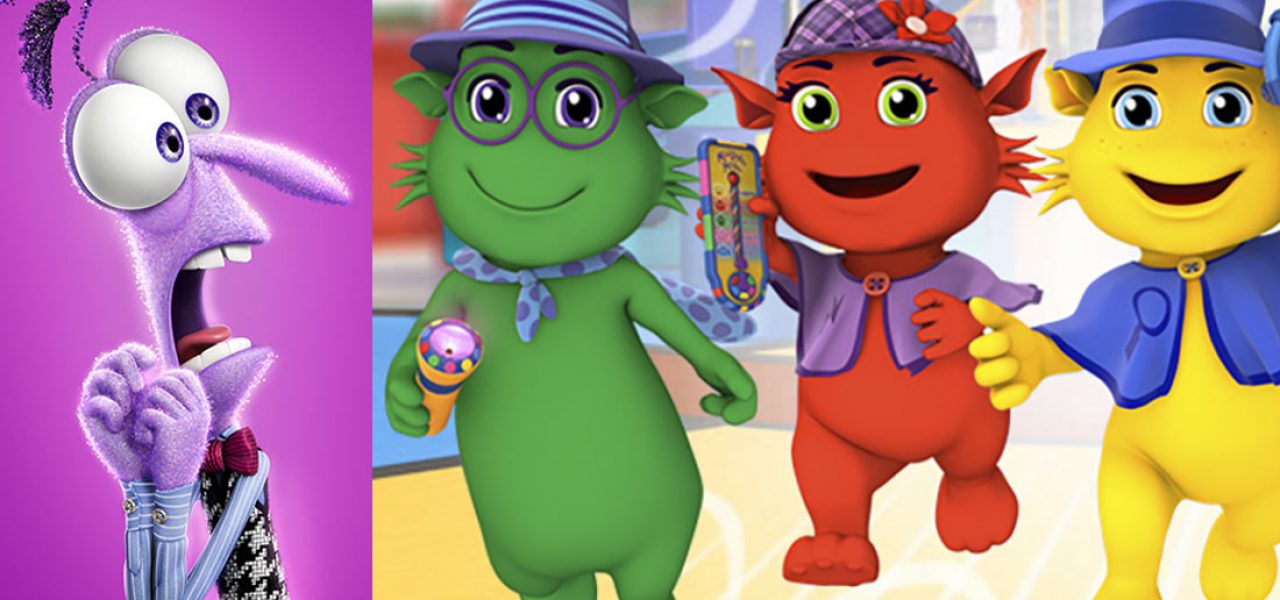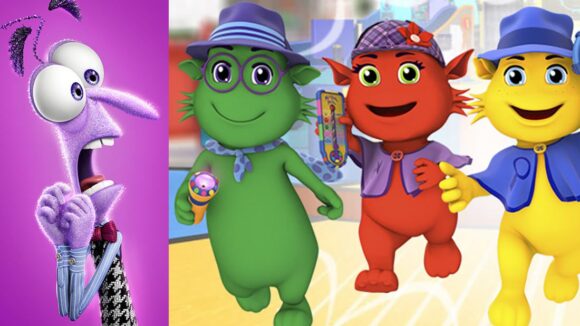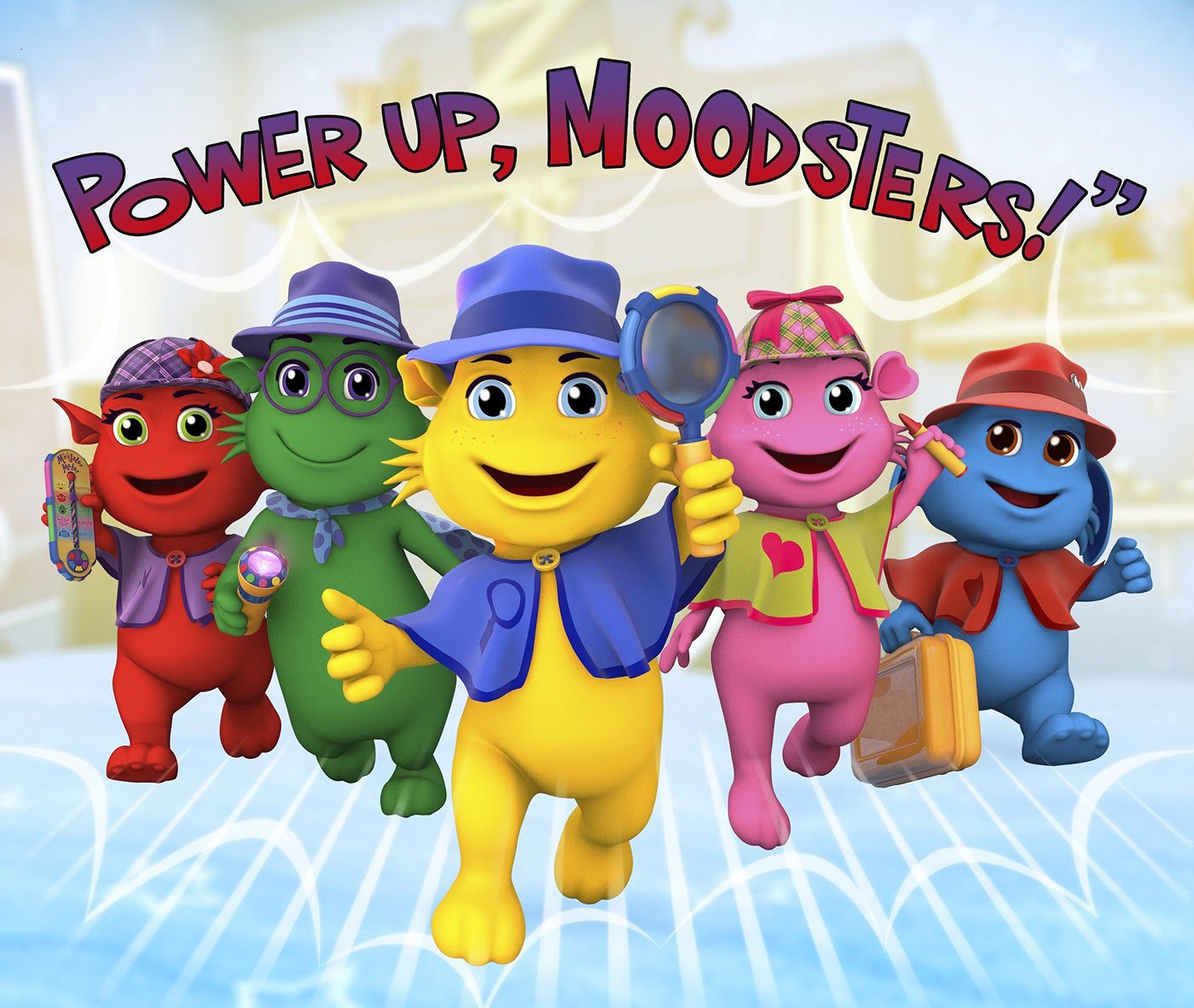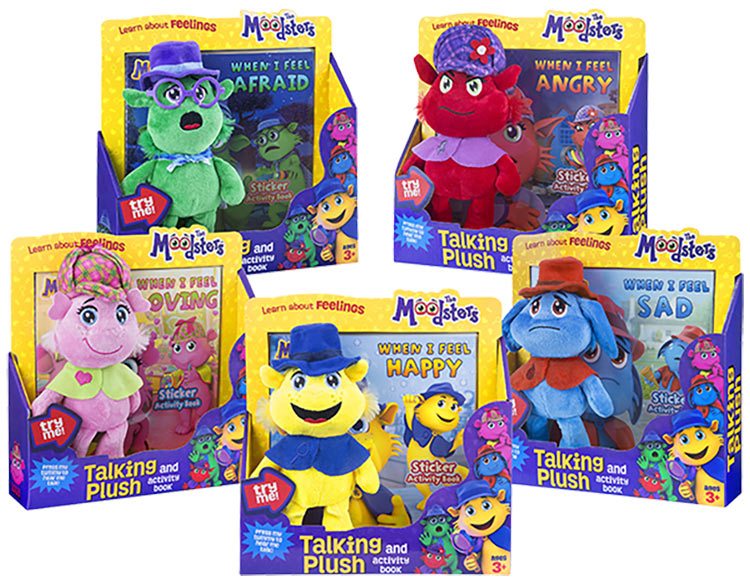

Disney and Pixar Accused Of Stealing ‘Inside Out’ In New Lawsuit By Parenting Expert
Denise Daniels, an experienced child development specialist, has filed a lawsuit against The Walt Disney Company and Pixar Animation Studios, alleging that Oscar-winning Inside Out was based at least in part on her project, The Moodsters.
Daneiels’ project features five main characters that are anthropomorphized versions of various emotions: happiness (yellow), anger (red), sadness (blue), fear (green), and love (pink). Inside Out, on the other hand, featured five anthropomorphized characters representing joy (yellow), sadness (blue), anger (red), fear (purple), and disgust (green).
Daniels, however, is not suing for copyright infringement. She instead alleges a breach of implied-in-fact contract. Under California Civil Code section 1621, “an implied contract is one, the existence and terms of which are manifested by conduct.”
In her lawsuit, Daniels argues that it is the custom in the entertainment industry that “creators…provide ideas and materials to producers and studios in exchange for compensation and credit” if those ideas or materials are used. Daniels alleges that Inside Out used several ideas she developed in The Moodsters. Because of this, she argues, Disney and Pixar had an implied-in-fact contract for which Disney and Pixar owe her compensation and credit.

According to Daniels’ lawsuit, The Moodsters characters live “[s]omewhere deep down inside every child.” The suit further claims that in 2008 Daniels got in touch with Disney chief financial officer Thomas Skaggs and discussed The Moodsters. Later that year, Skaggs told Daniels he would speak to Roy Disney about The Moodsters. Daniels also alleges she spoke “for an extended period of time” with Pete Docter about her characters and concept. Docter would go on to direct Inside Out.
She also points out that no other Disney or Pixar animated feature has ever used anthropomorphized emotions as characters, highlighting the concept’s uniqueness.
Arguing for breach of contract, Daniels avoids the more stringent requirements of a copyright claim, which excludes the protection of mere ideas. Instead, Daniels argues that Disney and Pixar created a contract when it used Daniels’ ideas, and it breached that contract when it failed to compensate and credit her.

Creators are more and more frequently turning to breach-of-contract claims where a copyright claim may not be successful. In 2005, Hayden Christensen – aka Anakin Skywalker in the infamous Star Wars prequel films, and his brother Tove, through their production company Forest Park Pictures, pitched a show to the USA Network about a doctor that caters to the rich and famous in Malibu.
After USA premiered its series Royal Pains, the Christensen brothers sued for breach of implied-in-fact contract. A federal appeals court, in a landmark 2012 ruling in Forest Park Pictures v. Universal Television Network, Inc., ruled in favor of the Christensens, allowing the suit to go forward, and USA ended up settling with the Christensens. According to some analysts, the court ruling in Forest Park Pictures has breathed new life into “idea theft” lawsuits.
In 2010, the Ninth Circuit Court of Appeals allowed a breach of implied-in-fact contract lawsuit to go forward, while dismissing a copyright claim, in a lawsuit filed by screenwriters Aaron and Matthew Benay against Warner Bros., alleging theft of their screenplay, The Last Samurai, by the 2003 Tom Cruise movie of the same name.
The challenge for Daniels, then, is proving that Disney and Pixar used her idea and, if so, that they should have realized by doing so they were creating a contract with her.
The lawsuit puts emphasis on Daniels’ professional credentials, highlighting her work with survivors of Hurricane Katrina, the shooting at Columbine High School, and the terrorist attack on New York City on September 11, 2001, and her appearances on The Today Show, The View, and Larry King Live.
Daniels recruited a team of professionals to help produce The Moodsters, including co-executive producer Lisa Simon, a veteran producer and director of Sesame Street who had also worked on Nick, Jr. and Little Airplane Productions; co-executive producer Louise Gikow, a writer on the PBS series, Between the Lions, and the Playhouse Disney show, Johnny and the Sprites; and creative director A.J. Dewey, an illustrator and designer whose work includes Dr. Seuess’s My Many Colored Days, and Animal Planet. Daniels also recruited Marc Brackett, director of the Yale Center for Emotional Intelligence.
Daniels has asked for a jury trial. Disney and Pixar now have twenty-one days to respond to the lawsuit.
The Walt Disney Company is also currently dealing with a lawsuit filed by Total Recall writer Gary Goldman, who alleges that the studio stole his concept for Zootopia.

.png)